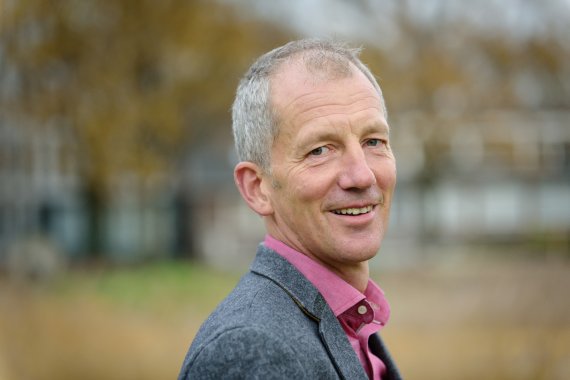This new job will be very different to his work as a professor. A deliberate choice, says Van Arendonk. ‘This is completely new, a fantastic challenge.’ Rather than producing knowledge, he will be delivering ‘products’ – he uses the word hesitantly as he is talking about animals after all – that offer the best fit with what livestock farmers and consumers want. Animal breeding is time-consuming and requires you to look ahead. What will farmers want in their laying hens, turkeys or pigs in five years’ time? ‘If you make the wrong choice, that immediately costs you market share and takes a lot of time to put right.’
Johan van Arendonk
1985 Obtained PhD and got a job with the Wageningen Agricultural University
2002-2015 Professor of Animal Breeding and Genetics
2004- 2007 Scientific director of the WIAS graduate school
2010-2015 Dean of Sciences
Van Arendonk is looking forward to being more closely involved in animal breeding again. He will have a small team, so few management tasks. And he will no longer have a second job as Dean. ‘That combination was fascinating but very demanding.’ Looking back, he sees many things to be proud of, in addition to his own group’s achievements. He cites the university’s PhD programme, which has improved further in recent years. The entire process from selection to doctorate was recently evaluated by external experts. ‘That’s not required and we’re the first in Europe to do so.’ Van Arendonk says looking for ways to improve even when things are going well is typical for Wageningen.
The number of PhDs at Wageningen University has risen steeply in recent years. This caused the PhD Council to worry about the quality of the supervision. ‘I understand the concerns,’ says Van Arendonk. But he does not think the growth is out of control. He also sees initiatives for better supervision. For example, all PhD performance and development interviews will be processed in the same e-tool as of 2016. This will end a discrepancy between the groups, says Van Arendonk. He also expects that all supervisors will need a ‘basic qualification in supervision’ in a few years’ time.

